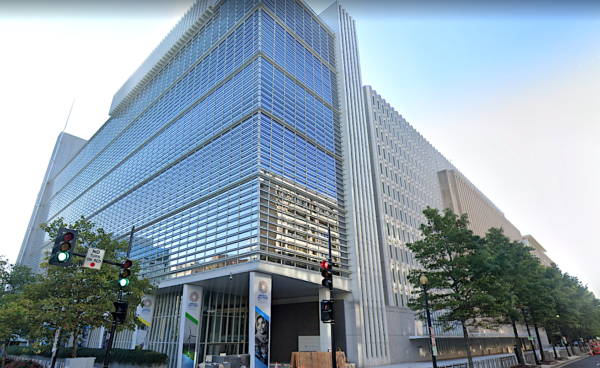Fed raises interest rates; World Bank asks if global recession is coming
The Board of Governors of the Federal Reserve System has again raised interest rates by three-quarters of a point and the action has again produced speculation about whether the latest move to control inflation will have the unintended consequence of touching off a recession.
The Fed”™s latest action raising rates came on Sept. 21, which was less than a week after the World Bank issued a report indicating the world may be edging toward a global recession in 2023. The World Bank”™s study, “Is a Global Recession Imminent?” said that interest-rate increases and other policy actions may not be sufficient to bring global inflation back down to levels seen before the Covid-19 pandemic. The World Bank said that interest rates set by central banks can expect to reach almost 4% in 2023. It forecasts that global inflation as calculated without energy costs could be brought down to an average of 5%, which although lower than the 8.3% with energy included that was reported for August in the U.S. and 13% reported in Europe still would be nearly double the five-year average before the pandemic.

“Global growth is slowing sharply, with further slowing likely as more countries fall into recession. My deep concern is that these trends will persist, with long-lasting consequences that are devastating for people in emerging market and developing economies,” World Bank Group President David Malpass said. “To achieve low inflation rates, currency stability and faster growth, policymakers could shift their focus from reducing consumption to boosting production. Policies should seek to generate additional investment and improve productivity and capital allocation, which are critical for growth and poverty reduction.”
The World Bank observed that global consumer confidence has already suffered a much sharper decline than in the run-up to previous global recessions. The economies of the U.S., China and the European Union have been slowing sharply and the World Bank suggests that in the past expansion of economic activity was encouraged rather than discouraged as has been taking place to fight inflation.
“Recent tightening of monetary and fiscal policies will likely prove helpful in reducing inflation,” said Ayhan Kose, the World Bank”™s acting vice president for equitable growth, finance and institutions. “But because they are highly synchronous across countries, they could be mutually compounding in tightening financial conditions and steepening the global growth slowdown. Policymakers in emerging market and developing economies need to stand ready to manage the potential spillovers from globally synchronous tightening of policies.”

The World Bank study says, “If the degree of global monetary policy tightening currently anticipated by markets is not enough to lower inflation to targets, experience from past global recessions suggests that the requisite additional tightening could give rise to significant financial stress and trigger a global recession in 2023.”
The study was not completely bleak, however, with the World Bank saying, “Our analysis indicates that the global economy could escape a recession even if additional monetary policy tightening beyond current market expectations is needed to reduce inflation. However, this would require the additional tightening to be implemented in such a way as to generate an orderly adjustment in financial markets. More importantly, policymakers need to utilize the full menu of options available to get ahead of inflation and reduce the likelihood of a sharper decline in growth.”
The World Bank also said that central banks need to be transparent in what they do.
“Transparency in the conduct of policy reduces the risk of abrupt market dislocations and financial stress, and increases the chances that public expectations will align with announced policy goals,” the study said.
The World Bank notes that over the past 50 years, global recessions have occurred when the world economy has experienced exceptionally large shocks on the supply side, such as in 1973 and 1974 when the world”™s oil supplies were sharply cut. There have been various recent shocks to the global supply chain, including Russia”™s cutting exports of its oil and natural gas to retaliate against western support for Ukraine.
“Since the global economy has already suffered a severe supply shock earlier this year, the key additional risk to the outlook would appear to be the possibility of larger-than-anticipated policy adjustments accompanied by acute financial stress,” the study said. “Central banks may have to do more to reduce inflation to their target levels than financial markets currently anticipate, just as in many advanced economies the extent of monetary policy tightening exceeded expectations before the 1982 recession. Moreover, this type of sharp policy adjustment could trigger financial market stress as it did during the 1982 episode.”
The World Bank study suggested that supply shocks could be dealt with by policies that help increase labor-force participation and reduce price pressures. The study said that labor-market policies can facilitate the reallocation of displaced workers.
The study also suggested that global coordination can go a long way in increasing food and energy supplies. For energy commodities, policymakers should accelerate the transition to low””carbon energy sources and introduce measures to reduce energy consumption.
The study also called for strengthening global trade networks with policymakers cooperating to alleviate global supply bottlenecks. They should support a rules-based international economic order, one that guards against the threat of protectionism and fragmentation that could further disrupt trade networks.